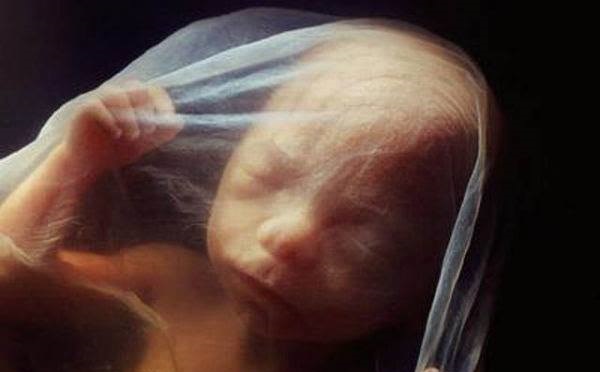The Texas abortion ban celebrates its first anniversary today. In one year, the heartbeat law — which has since been upgraded to a full abortion ban — has saved over 40,000 babies from abortions.
Last year, Texas Gov. Greg Abbott signed the bill to ban abortions once an unborn baby’s heart begins beating. The Texas Heartbeat Act made the state the first to ban aboritons, starting at 6 weeks when a baby’s heartbeat can be detected on a sonogram, since Roe v. Wade was handed down in 1973.
Abbot said the bill, “… ensures that the life of every unborn child who has a heartbeat will be saved from the ravages of abortion.”
“We’re addressing every issue in the entire state that will make lives better for everybody, including innocent, unborn children,” the governor said. “What this bill seeks to do is once a heartbeat is detected in a mother’s womb, at that time it would be inappropriate to take the life of that baby. Texas has taken a position that innocent life is so important.”
The law made its way to both the U.S. Supreme Court and the Texas Supreme Court and was allowed to go into effect because it contained a private right of action to enforce the law with lawsuits against abortionists rather than criminal penalties that made abortion bans in other states unenforceable under Roe.
This summer, a pre-Roe abortion law went into effect immediately following the Supreme Court decision to overturn Roe v. Wade that provided protection for babies starting at conception.
Now, thanks to the Supreme Court making its Dobbs decision official last month, a Texas trigger law that bans abortions when Roe v. Wade is overturned will go into effect today. That will protect all babies from abortions and only allow abortions in very limited instances such as the life of the mother and allowing care for miscarriages and ectopic pregnancies.
Follow LifeNews on the MeWe social media network for the latest pro-life news free from Facebook’s censorship!
The heartbeat law was already saving about 100 babies every day from abortion and the full abortion ban increases that number to 167 babies a day.
Kimberlyn Schwartz, Director of Media & Communication for Texas Right to Life, told LifeNews she’s proud of the pro-life laws and excited by the numbers.
“Today we celebrate the incredible 1-year milestone of saving lives with the Texas Heartbeat Act,” she told LifeNews. “In that time, we estimate 40,000 babies have been saved from abortion, and we continue to blaze the trail for the rest of America in the post-Roe world.”
She added: “We faced brutal attacks from the enemy over the last year, but God blessed us and provided for us. Thank you to everyone who stood with the Texas Heartbeat Act and the preborn children saved, and we’re excited to keep building on this historic momentum.”
The pro-life group is speaking with Texas legislators to include even more enforcement mechanisms to ensure the abortion ban is followed and more pro-life legislation could be in the offing during the next legislative session.
As LifeNews reported, the Supreme Court overturned Roe v. Wade, with a 6-3 majority ruling in the Dobbs case that “The Constitution does not confer a right to abortion” — allowing states to ban abortions and protect unborn babies. The high court also ruled 6-3 uphold the Mississippi 15-week abortion ban so states can further limit abortions and to get rid of the false viability standard.
Get the latest pro-life news and information on Twitter. Follow @LifeNewsHQ
Chief Justice John Roberts technically voted for the judgment but, in his concurring opinion, disagreed with the reasoning and said he wanted to keep abortions legal but with a new standard.
Texas and Oklahoma had banned abortions before Roe was overturned and Missouri became the first state after Roe to protect babies from abortions and South Dakota became the 2nd. Then Arkansas became the third state protecting babies from abortions and Kentucky became the 4th and Louisiana became the 5th and Ohio became the 6th and Utah became the 7th and Oklahoma became the 8th and Alabama became the 9th. This week, Mississippi became the 10th and South Carolina became the 11th,Texas became the 12th with its pre-Roe law and Tennessee became the 13th.
Michigan, Wisconsin and West Virginia have old pro-life laws on the books but there is question about whether they are applicable and will be enforced.
Ultimately, as many as 26 states could immediately or quickly ban abortions and protect babies from certain death for the first time in nearly 50 years.
The 13 total states with trigger laws that would effectively ban all or most abortions are: Arkansas, Idaho, Kentucky, Louisiana, Missouri, Mississippi, North Dakota, Oklahoma, South Dakota, Tennessee, Texas, Utah and Wyoming.
“Abortion presents a profound moral question. The Constitution does not prohibit the citizens of each State from regulating or prohibiting abortion. Roe and Casey arrogated that authority. We now overrule those decisions and return that authority to the people and their elected representatives,” Alito wrote.
“Roe was egregiously wrong from the start. Its reasoning was exceptionally weak, and the decision has had damaging consequences,” Alito wrote. “And far from bringing about a national settlement of the abortion issue, Roe and Casey have enflamed debate and deepened division.”
Justices Sonia Sotomayor, Elena Kagan and Stephen Breyer authored a joint dissent condemning the decision as enabling states to enact “draconian” restrictions on women.
Polls show Americans are pro-life on abortion and a new national poll shows 75% of Americans essentially agree with the Supreme Court overturning Roe.
Despite false reports that abortion bans would prevent doctors from treating pregnant women for miscarriages or ectopic pregnancies, pro-life doctors confirm that is not the case. Some 35 states have laws making it clear that miscarriage is not abortion and every state with an abortion ban allows treatment for both.








